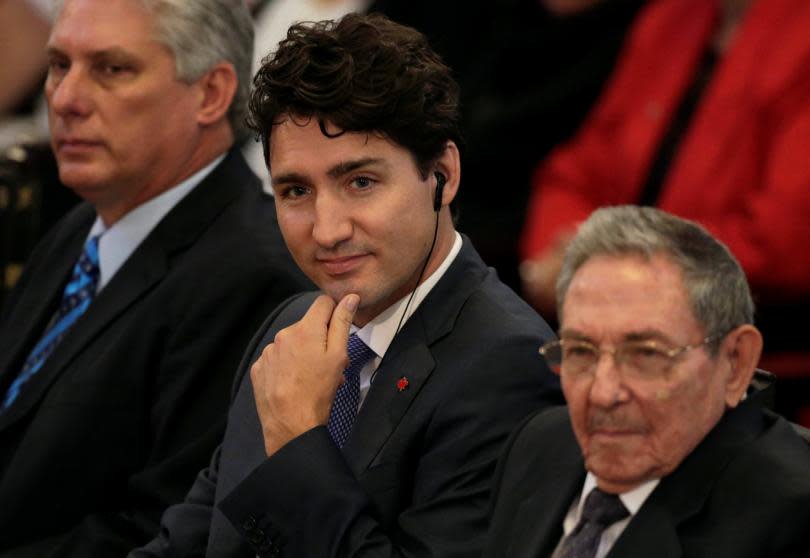Miguel Diaz-Canel Likely To Succeed Raul Castro
The one constant in Cuba in the last six decades has been a Castro holding the reins of power. But with Friday’s death of Fidel and the fact his younger brother Raul is 85, attention is turning to the next generation of Cuban leaders.
Miguel Diaz-Canel, 55, currently serves as Raul Castro’s vice president and is his apparent successor. He has been working his way up the hierarchy for 30 years, first in provincial positions and then as minister of higher education. When he was 43, he became a member of the Politburo, the youngest ever. Most of the other members fought in the 1959 revolution.
An electrical engineer by trade and a Beatles fan, Diaz-Canel is a social media devotee, often posting pictures of himself and the younger Castro brother.
America’s Quarterly said in a profile last year Diaz-Canel generally keeps a low profile. He was born after the revolution and is a member of the reform wing of the party, more an experienced manager than ideologue. Unlike the Castros, he dresses in jeans and sports jackets, eschewing military fatigues.
"He is well-liked, young, well-educated, and he's gone through all the different hoops. That he is admired in the often snippy world of university circles is very significant and shows he has the talent for handling people," Professor Rafael Betancourt of the University of Havana told the Latin Post.
He is described as witty and relaxed in private, but not a rousing speaker or charismatic leader in public. In his provincial stints, Diaz-Canel often would pop into local bars to take the temperature of the community.

Cuban Vice President Miguel Diaz-Canel (left) is likely to succeed Raul Castro (right) when he steps down as president in 2018. Also in this picture is Canadian Prime Minister Justin Trudeau at a conference at the University of Havana, Cuba Nov. 16, 2016. Photo: Enrique de la Osa/Reuters
In appointing Diaz-Canel, Raul Castro declared, “Comrade Diaz-Canel is not an upstart nor improvised.” He stopped short, however, of declaring Diaz-Canel his successor. When he assumed power from his brother in 2013, Raul Castro said he would serve only five years but left open whether he also will resign his positions as head of the Cuban military and the Communist Party.
The question is whether Diaz-Canel will be able to maintain the same kind of control as the Castro brothers, who forged strong relationships with the military, which controls nearly all of the island’s money and economy.
Cuban dissident and human rights activist Antonio Rodiles thinks not. He told the Latin Post Diaz-Canel will be little more than a figurehead for the military, a placeholder until younger members of the Castro family, like Raul Castro’s son Alejandro are ready to seize power.
"When Raul Castro is the president, then yes, the president runs Cuba," Jaime Suchliki, director of the University of Miami's Institute for Cuban and Cuban-American Studies, told the Miami Herald. "When Raul Castro is not president, that will be a very different matter. Díaz-Canel has no tanks and no troops."
Col. Alejandro Castro Espin, 51, is in Cuba’s Interior Ministry security forces and one of his father’s closest aides as a member of a commission on defense and national security. Also in the wings is Col. Alberto Rodriguez Lopez-Callejas, his son-in-law.
The Herald said signs of generational change are emerging all over the island.
"They are showing on the Mesa Redonda TV show documentaries glorifying the lives of old military generals, humanizing the lives of members of the elite,” Cuban dissident Ailer González told the Herald. It seems a sort of goodbye, in order to promote younger people willing to continue defending the regime."
Related Articles



